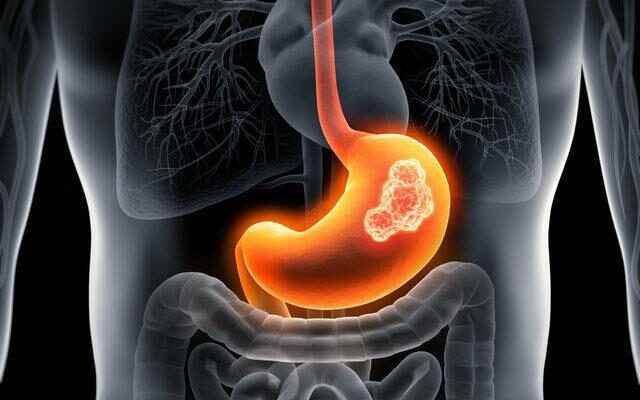Stomach cancer, like other types of cancer, increases the chance of cure when detected early. For this reason, we focused on the symptoms of stomach cancer. Stomach cancer is the medical term to describe the uncontrolled growth of malignant cells in the stomach lining.
Because the tumor is still localized and has not yet affected distant lymph nodes, the first symptoms of stomach cancer will likely progress quickly without the person noticing. However, as the tumor grows, symptoms such as other common gastrointestinal problems may occur, although they may be ignored.
WHAT IS EPIGASTRIC PAIN?
According to experts, 80 percent of patients with stomach cancer initially complained of epigastric pain. Investigating unusual body changes, such as epigastric pain, can lead to early detection.

As the disease spreads to other parts of the body where a tumor can trigger a new set of symptoms, the warning signs can likewise become increasingly misleading.
MIXED WITH STOMACH ULCER
Dr. Sanjay Mehta said: “Stomach cancer in its early stages can lead to symptoms of indigestion and upper abdominal pain (epigastric pain), the latter reported to be present in 80 percent of cases. However, gastric cancer does not always present symptoms in its early stages. Epigastric pain in the upper abdomen, tends to be concentrated below the breastbone and is often likened to pain caused by a stomach ulcer. When abdominal pain or back pain becomes chronic, this means local invasion of the stomach by a tumor. However, the slow development of stomach cancer occurs before the symptoms cause enough concern to warrant a test. means the disease goes undetected for years.”
STOMACH CANCER SYMPTOMS
The first signs of stomach cancer can also often be vague. These include changes in appetite or weight, including feeling full after eating small amounts, nausea and vomiting. It can also bleed into the stomach, another potential warning sign that reduces the number of red blood cells to detect stomach cancer early and shows up as anemia in a blood test.

EPIGASTRITIS PAIN IS AN IMPORTANT WARNING
Epigastric is among the most common manifestations of the disease, but some case reports suggest that other symptoms may precede it, according to Massachusetts General Hospital.
It’s unclear exactly what causes the uncontrolled growth of stomach cells, but several potential triggers have been identified to date. Inflammation in the intestine, polyps in the stomach or long-term anemia may be a sign of the disease.
